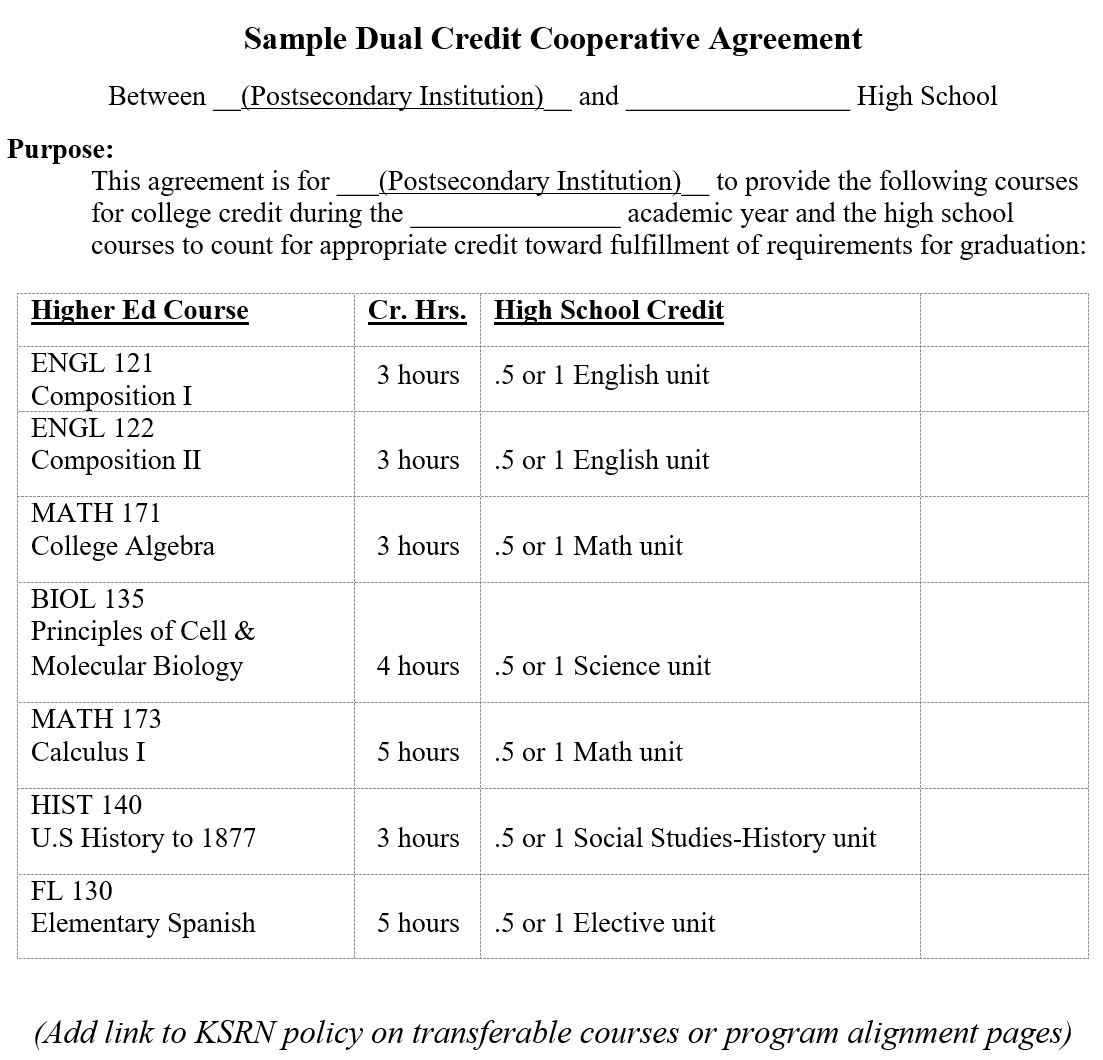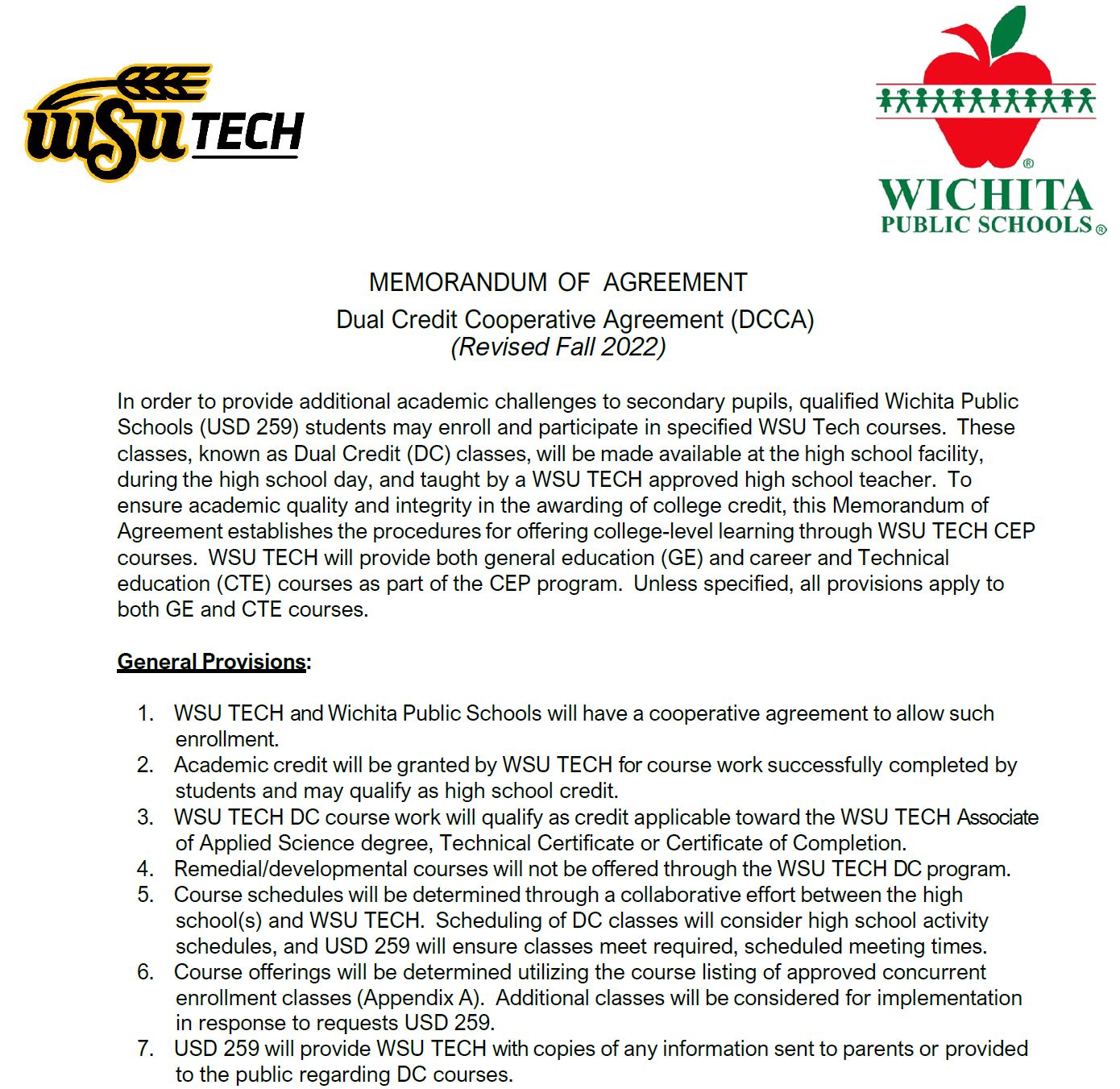“Dual Credit Courses” as defined by the Higher Learning Commission are courses taught to high school students for which the students receive both high school and college credit and involve the accredited institution’s responsibility for the quality of its offerings.
“Dual credit enrollment” is a subset of dual credit and means enrollment of high school students in dual credit courses, pursuant to a dual credit cooperative agreement. Courses are taught by a postsecondary educational institution faculty member in which students receive both high school credit and college credit for completing the course.
“Concurrent enrollment” is a subset of dual credit and means enrollment of high school students in dual credit courses, pursuant to a dual credit cooperative agreement. Courses are taught by high school teachers during the regular high school day in which students receive both high school credit and college credit for completing the course.
“Dual enrollment” means enrollment of high school students in college courses outside a cooperative agreement between the district and postsecondary institution entered pursuant to the Kansas Challenge to Secondary School Students Act, in which a transcript is issued for credit from the institution without regard to high school credit. All modes of delivery of academic offerings and all campus locations are appropriate for dual enrollment courses including main campus, additional locations, and distance delivery.
“Student” means:
(1) is enrolled in grades 10, 11, or 12 maintained by a school district, or a gifted child who is enrolled in any of the grades 9 through 12 maintained by a school district;
(2) has an individualized plan of study or an individualized education program;
(3) has demonstrated the ability to benefit from participation in the regular curricula of eligible postsecondary institutions;
(4) has been authorized by the principal of the school attended to apply for enrollment at an eligible postsecondary educational institution;
and (5) is acceptable or has been accepted for enrollment at an eligible postsecondary educational institution as a degree-seeking or non-degree seeking student.
Dual Credit Cooperative Agreements
The Kansas Challenge to Secondary School Students Act, K.S.A. 72-3220 through 72-3224, (Challenge Act) provides a means for school districts, in cooperation with eligible postsecondary institutions, to challenge high school students by procuring early college opportunities. The Kansas Board of Regents encourages all system postsecondary institutions to collaborate with local school districts and provide dual credit opportunities to high school students through cooperative agreements entered pursuant to the Challenge Act. The Challenge Act does not mandate system postsecondary institutions to offer dual credit enrollment to students in local school districts. However, if an eligible system postsecondary institution chooses not to offer dual credit enrollment with local districts pursuant to the Challenge Act, in accordance with Board policy for Off-Campus Delivery of Academic Courses and Programs, the home institution shall allow eligible system postsecondary institutions outside the institution’s service area to provide the Challenge Act opportunities with those school districts. The Challenge Act requires academic credit granted for courses successfully completed by high school students to qualify as both high school and college credit, which is defined as dual credit by the Higher Learning Commission. Board policy requires a dual credit cooperative agreement for all dual credit courses.
“Dual Credit Cooperative Agreement” means a written memorandum of understanding between an eligible postsecondary institution and a school district entered pursuant to the Kansas Challenge to Secondary School Students Act for the purpose of offering dual credit courses to eligible students who receive both high school credit and college credit.
“Dual Credit Courses” as defined by the Higher Learning Commission are courses taught to high school students for which the students receive both high school and college credit and involve the accredited institution’s responsibility for the quality of its offerings.
Policies are found in Chapter III, Section A of the Policy Manual.
sample Dual Credit cooperative agreement
 |
This fillable document serves as a sample Dual Credit Cooperative Agreement between a postsecondary institution and a school district. Institutions can customize this Agreement to meet their specific needs pursuant to the Kansas Challenge to Secondary School Students Act. |
 |
Viewing this PDF from WSU Tech's partnership will demonstrate how Dual Credit Cooperative Agreements can be customized to meet specific needs and provide a written memorandum of understanding for eligible students to enroll in dual credit courses through the institution. |
